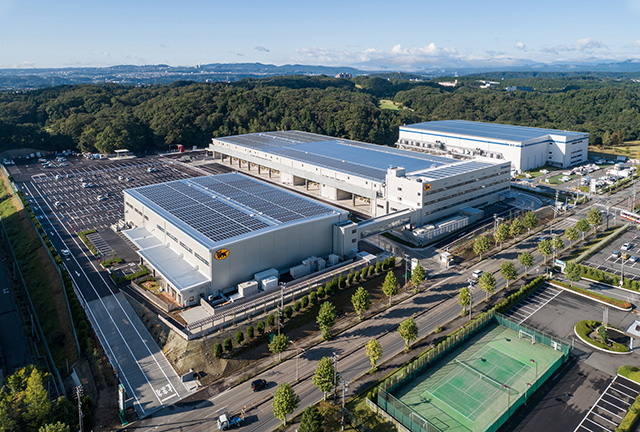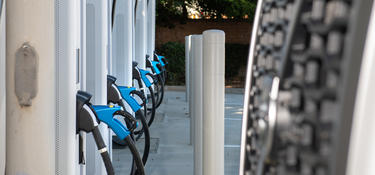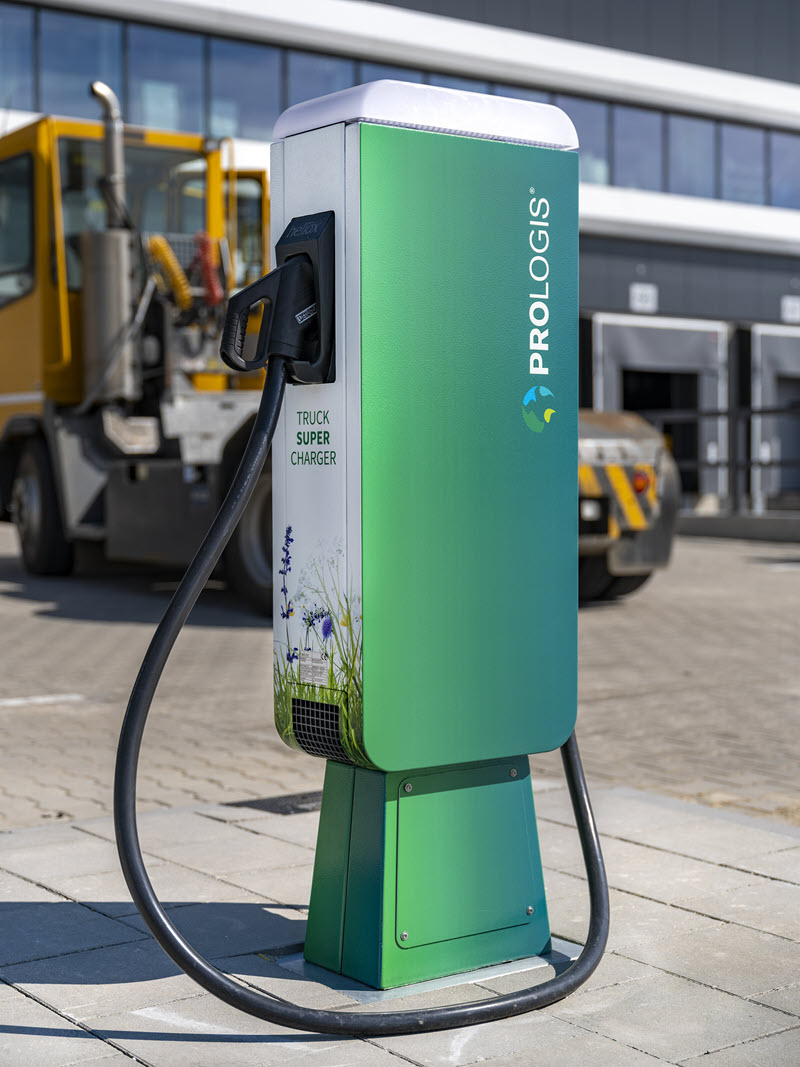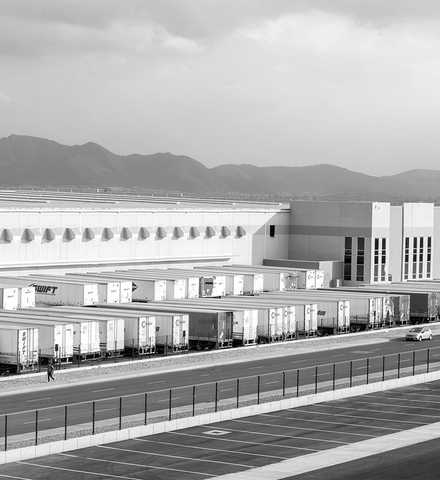
Innovation fueling a zero-emissions future
Today’s consumers are demanding more sustainability in more aspects of their lives, including the logistics behind deliveries of their goods. With the transport sector alone accounting for 37% of all carbon dioxide emissions, governments are responding with new electric vehicle mandates taking hold across the country.
California leads the charge with proposed regulations to ban most diesel big rigs in the next two decades and require drayage trucks—about 30,000 short-haul vehicles that are some the heaviest polluters on the road—to be zero emissions by 2035. The move will transform trucking and logistics dramatically and require new, sustainable infrastructure and even more bespoke, renewable power sources.
“It’s important to understand that this is not just happening in a bubble in California,” says Henrik Holland, global head of mobility at Prologis. He points to a consortium of states, including New York, Massachusetts, New Jersey, Washington and Oregon, that have also committed to clean fleet regulations, as well as similar initiatives underway internationally. “Our mission is to enable this imminent transition for our customers,” Holland adds.
With a consortium of states committed to clean fleet regulations, as well as similar initiatives underway globally, Prologis’ mission is to enable this imminent transition for our customers.
Henrik Holland
Global Head of Mobility, Prologis
CHARGING FLEETS OF THE FUTURE
While many leaders have already ordered their EVs, Holland says charging infrastructure is often an afterthought. Substantial and collaborative investment in global utility grid upgrades will be critical on the electrification journey—30% of load centers in the U.S. currently need an upgrade to handle EV charging, says Annette Clayton, CEO of Schneider Electric North America. “The grid has to become smarter. It has to be controlled with software. It has to become bidirectional. All the circuits have to become smart,” Clayton said at Prologis’ 2022 GROUNDBREAKERS thought leadership forum. “Technology and digitization become really, really important.”
Prologis and Schneider Electric are working to meet today’s green infrastructure demands with local, decentralized, sustainable energy systems, known as microgrids. In October, Schneider Electric partnered on a state-of-the-art sustainable depot in Montgomery County, Maryland, converting a diesel fleet of 70 buses to all-electric models. The site’s 6.5-megawatt microgrid integrates solar photovoltaic canopies, onsite energy generation, electric bus chargers, on-premises renewables, and a battery energy storage system. The facility is expected to eliminate an estimated 78,000 tons of CO2 over the next 12 years.






